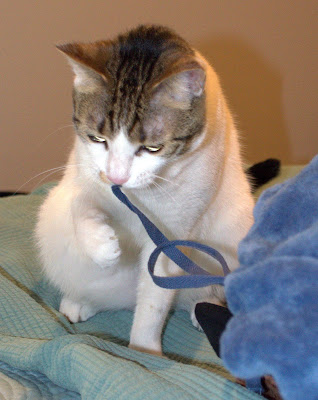 A Brown Man in Russia: Lessons Learned on the Trans-Siberian is the memoir of a young American of Indian descent who traveled to Russia with two of his friends.
A Brown Man in Russia: Lessons Learned on the Trans-Siberian is the memoir of a young American of Indian descent who traveled to Russia with two of his friends.Vijay Menon works in the tech industry and decided early on that he wanted to travel widely. Because he grew up in an affluent family and has had jobs that pay well, he's already traveled quite extensively. The book mostly focuses on the trip to Russia and how he and his friends occasionally got pleasantly lost or had trouble finding their way to their destinations, the people they encountered along the way, and the occasional mistakes they made.
A Brown Man in Russia is very entertaining. In between chapters on their adventures, Menon occasionally will wax philosophical, giving advice or simply describing his world views. You could call it a tiny bit preachy, but I thought it was a little preachy in a good way (probably because we are in agreement, most of the time). There was only one thing I really disliked about this book and that was the vocabulary. It sounds like Menon wrote with a thesaurus on his lap. If he talks the way he writes (which is hard to imagine), his vocabulary is lofty. It just comes off as if he's trying to sound impressive. I opted to overlook that and just enjoy the book, but it occasionally bothered me enough that I marked a passage, for example: the use of "postprandial" and other long words to describe feeling full and satisfied after lunch. Just unnecessary.
I think it's also worth mentioning that this is the second book I've read recently by Glagoslav Publications (a publisher that mostly publishes works in translation) in which pages fell out as I was reading the book. I wrote to ask if anything is being done about the binding issue, since it's happened more than once, and did not hear back from the publicist. I've read books by Glagoslav in the past and not had that problem, so hopefully it was a temporary fluke.
UPDATE: I received a reply about the binding problem and apparently an earlier reply went into my spam box. The publicist has asked for photos of the binding issue to forward to the printer as she considers it a very serious problem. I will do that, ASAP, and presume that the problem will be attended to. Apologies to Glagoslav for not seeing that response before I wrote my review.
Recommended but not a favorite - It's a shame that the writing in A Brown Man in Russia is so pompous because otherwise it's a great little book. I enjoyed reading about the author's adventures and even enjoyed it when he pontificated about his personal beliefs about travel and other topics. The writing style makes for slow reading, but that didn't bother me and I'm glad I read it.
The Birds of Opulence by Crystal Wilkinson was the first selection of the Open Canon Book Club (which has a Facebook site as well as a website, easy to find by googling the name) and I enjoyed it so much that I'll probably end up recommending it to my book group. Opulence is the name of a town but I can't remember whether it's in North Carolina or some other Southern state, since I read it over a month ago. The Birds of Opulence tells the story of several generations of women who live in Opulence, most of them family, the others friends of that family.
There's not much plot to The Birds of Opulence. I would call it a quiet novel, a short but intense family saga. It starts with a woman giving birth in a vegetable patch and then a widowed neighbor giving birth shortly after. The mother who gives birth in the family's garden is disinterested in her child and has trouble even getting out of bed. These glimpses of depression prove to be merely the start of a long life of mental illness that is kept under control by the support of her family.
Gradually, each of the women's stories unfold and the two babies grow and have children of their own. Eventually, the women begin passing away and the book closes with the thoughts of the one man who was always surrounded by the women and there for them, a loving and faithful presence from the time he entered the family.
Highly recommended - The Birds of Opulence is a beautiful, heart-rending, poetic novel of family and mental illness. I was not quite finished with the book when Crystal Wilkinson did a Q/A session with the group, but I saved the entire question/answer session (which was done on Facebook) and returned to it when I finished. I really enjoyed reading what she had to say about the writing process and the characters. I would definitely recommend The Birds of Opulence for discussion.
©2018 Nancy Horner. All rights reserved. If you are reading this post at a site other than Bookfoolery or its RSS feed, you are reading a stolen feed. Email bookfoolery@gmail.com for written permission to reproduce text or photos.







